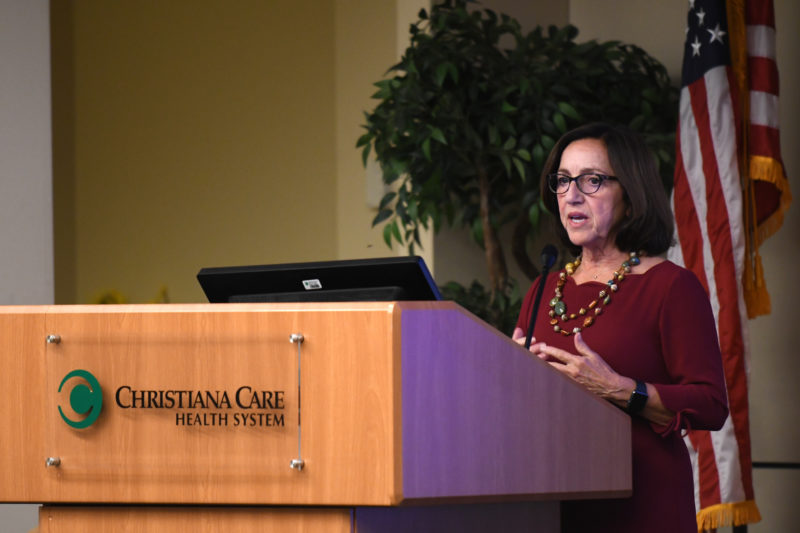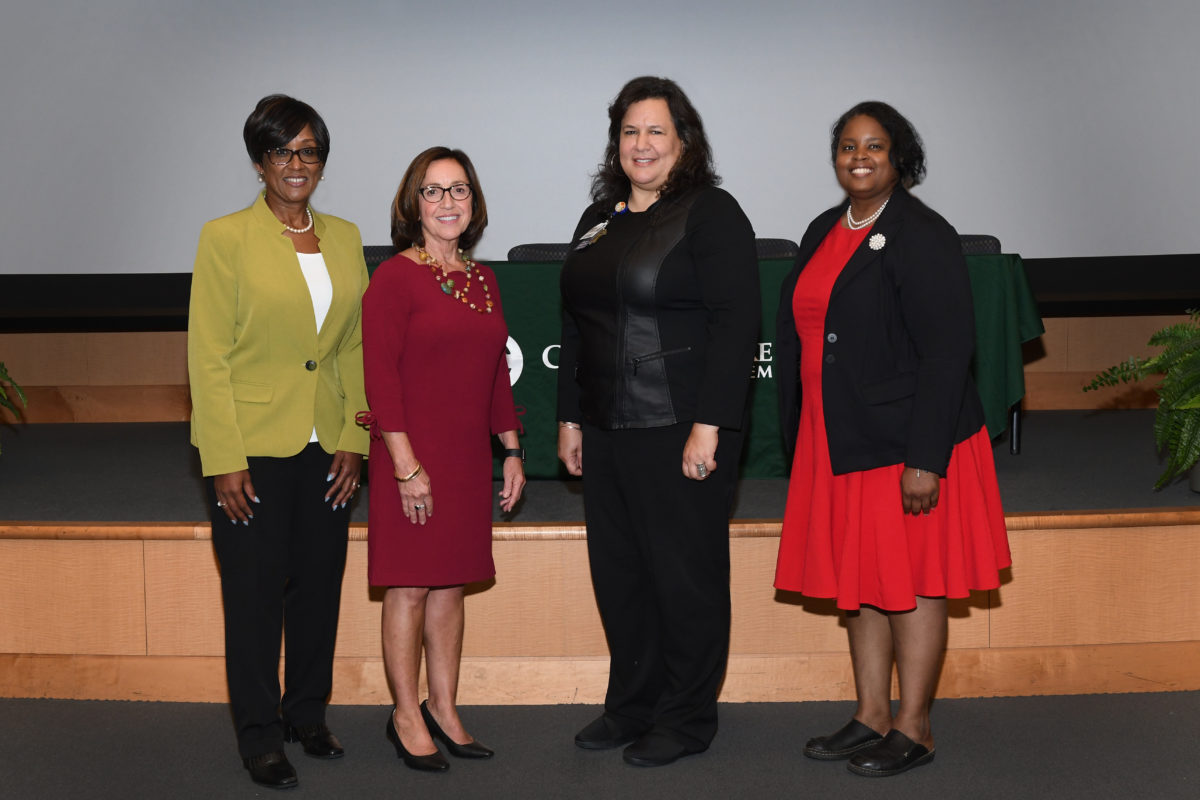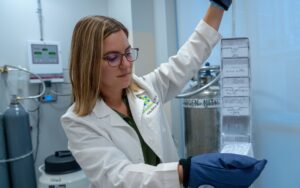More than 50 percent of Hispanics are expected to develop diabetes at some point in their lives, compared to 40 percent of the population overall. Hispanics also are more likely to die of complications of diabetes. That’s why it’s important to remove barriers to care, said Lolita Lopez, CEO of Westside Family Healthcare, at a Sept. 28 event at Christiana Care’s John H. Ammon Medical Education Center.
“We have to figure out what is keeping patients from getting care and then come up with enabling services,” she said, in a presentation titled “Breaking Down Walls to Serve Our Community.”
Westside Family Healthcare is a Joint Commission accredited nonprofit federally qualified health center and a longtime partner of Christiana Care Health System. Lopez said that when Westside was launched in 1988, most patients were Hispanic.
“They were not being served in their own language and in a culturally competent way,” she said.
Today, Westside operates six bilingual health centers throughout Delaware, as well as a mobile unit for farm workers in Kent and Sussex counties. About 43 percent of Westside’s patients identify as Hispanic or Latino.
The majority of patients — 84 percent — have incomes at or below 200 percent of the federal poverty level.
She talked about the importance of addressing social determinants of health, such as the stress of utilities being cut off, hunger and unemployment.
Partnerships can help to alleviate disparities, she said. Westside is distributing “prescriptions” for produce that can be redeemed at the Delaware Food Bank. Westside partners with Stand By Me and the Delaware Financial Literacy Institute to help families learn to best manage their resources. They are working to establish a bridge to care for people getting out of prison.
“We also support women from preconception to postpartum,” she said. “Planned pregnancies really make a difference in the pathway of life.”

Following her talk, Lopez joined a panel discussion with three Christiana Care experts who work closely with the Hispanic community: Jacqueline Ortiz, M.Phil, director of Cultural Competency, Health Equity and Language Services; Adrian Quesada-Rojas, M.D., an obstetrician/gynecologist; and Margot Savoy, M.D., medical director of Family and Community Medicine.
Their conversation focused on diabetes in the Hispanic community. Christiana Care has set a strategic goal for fiscal year 2018 to collaborate across the organization in a focused way to improve diagnoses and care for people with diabetes.
Ortiz said it’s essential to understand a patient’s culture in establishing a plan of care. For example, she pointed out that it’s common for diabetes education materials to be illustrated with images of foods like sliced bread, corn on the cob and baked potatoes — none of which are common in many Latino diets. To help Hispanic patients with diabetes to understand what changes they need to make in their diet, it’s important to ensure they can actually understand and relate to the educational materials they are given.
In one instance, during a video interpretation, Ortiz learned that a diabetic patient didn’t understand a number of issues related to managing her diabetes, including how much medication to take to what foods to eat.
“From her description of her diet, I could tell she had no idea what fats, carbohydrates or proteins are or which foods to choose,” she said. “We have to address where the patient is coming from before we can deliver high-quality care.”
Dr. Savoy noted that diabetes impacts care across the continuum, from home health nurses who dress wounds to pharmacists who deal with medications. Collaboration is key. She spoke about Christiana Care’s core values — excellence and love — and how they guide care.
“What we are after is all people living a good life,” Dr. Savoy said. “If you genuinely love the person sitting across from you, you don’t let him leave your office without making sure he understands what you are telling him about what he should eat, what is going on with his care.”
Dr. Quesada-Rojas said diabetes contributes to high-risk pregnancies and increases the risk of stillbirth. He said Latina patients are reassured and relieved when he speaks to them in Spanish.
“The barriers come from many angles,” he said. “Lack of insurance and the inability to get tests is limiting. So is explaining that tortillas are not what they should be eating. Speaking their language makes the conversation easier.”
The event was part of a monthly series sponsored by Christiana Care’s Multicultural Heritage Committee and Office of Health Equity.
Samantha Brown, a breastfeeding facilitator at Christiana Hospital, often works with Westside patients, who account for 10 percent of deliveries at Christiana Care. She said the presentations make an important contribution to diversity and inclusion.
“It teaches us to put ourselves in someone else’s shoes,” Brown said.



